
Princess Diana Serviceberry (Amelanchier x grandiflora 'Princess Diana
Amelanchier grandiflora 'Princess Diana' (Serviceberry) is a Shrub that grows 15-20 feet feet high and 10-15 feet feet wide. The Amelanchier grandiflora 'Princess Diana', commonly known as Serviceberry, is an ornamental shrub or small tree that belongs to the Rosaceae family. It is known for its delicate white flowers that bloom in spring, followed by edible purple berries in summer.

Photo of the bloom of Apple Serviceberry (Amelanchier x grandiflora
Type: Multi-Stem. Zone: 4. Height: 20-25 ft. Width: 20-25 ft. Foliage: Medium to dark green. Fall Foliage: Brilliant red. Flower Color: White. Description: The Princess Diana Apple Serviceberry is popular for its clean foliage, edible fruit, excellent fall color and open habit.
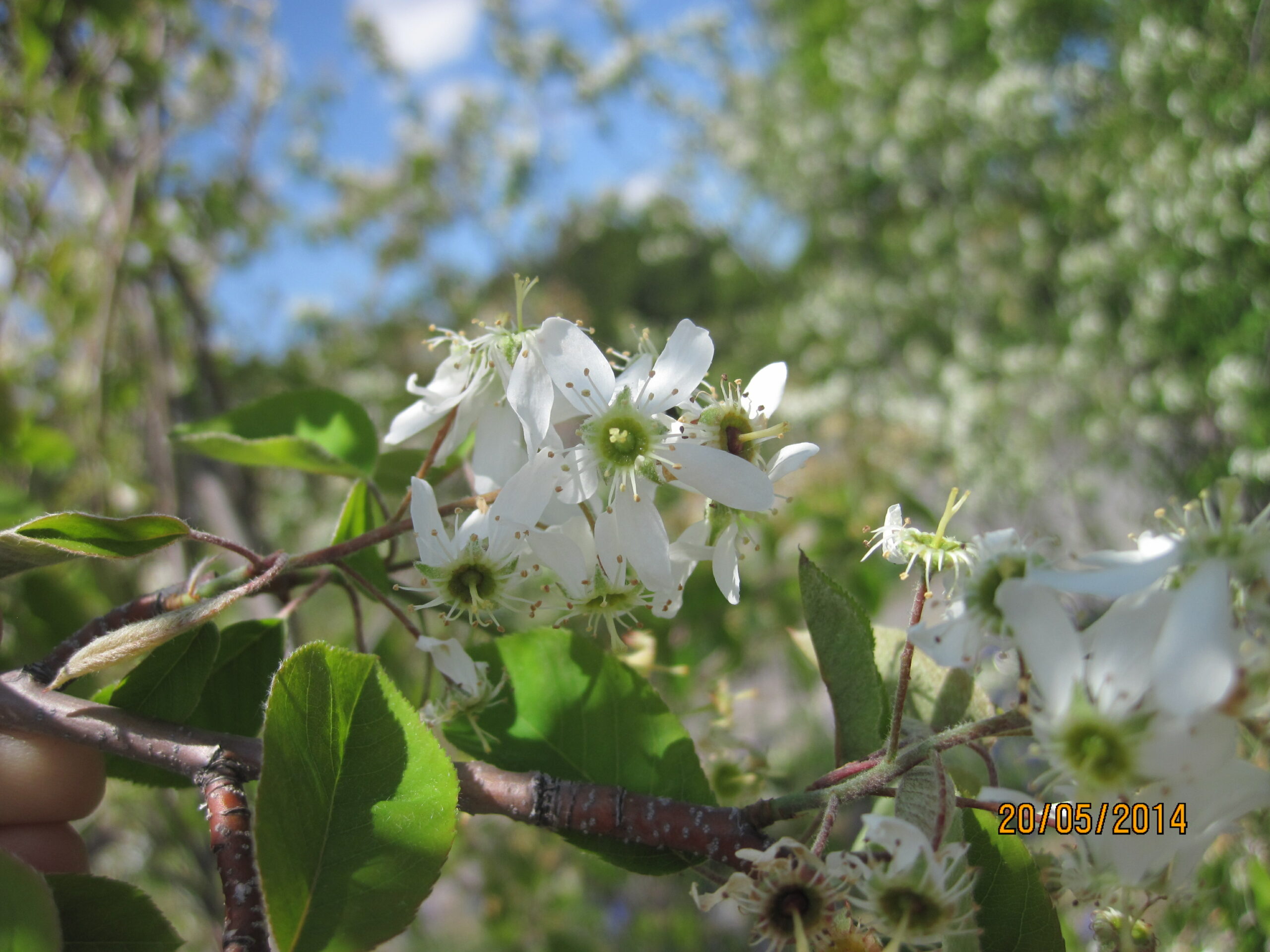
Amelanchier X Grandiflora 'Princess Diana' Pépinière Cramer Inc.
Princess Diana apple serviceberry (Amelanchier x grandiflora 'Princess Diana'): This tree can reach 20 to 25 feet high and 15 to 20 feet wide. It has an upright habit and provides excellent red fall color. Robin Hill apple serviceberry (Amelanchier x grandiflora 'Robin Hill'): This variety reaches 20 to 25 feet high and 12 to 15 feet wide.

Amelanchier x grandiflora 'Princess Diana'Amélanchier à grandes fleurs
Genus name comes from a French provincial name for Amelanchier ovalis a European plant in this genus. Specific epithet means large flowers. 'Princess Diana' is noted for its yellow flower buds, abundant white flowers in spring, deep bluish purple fruits, wide-spreading branches and red fall color.
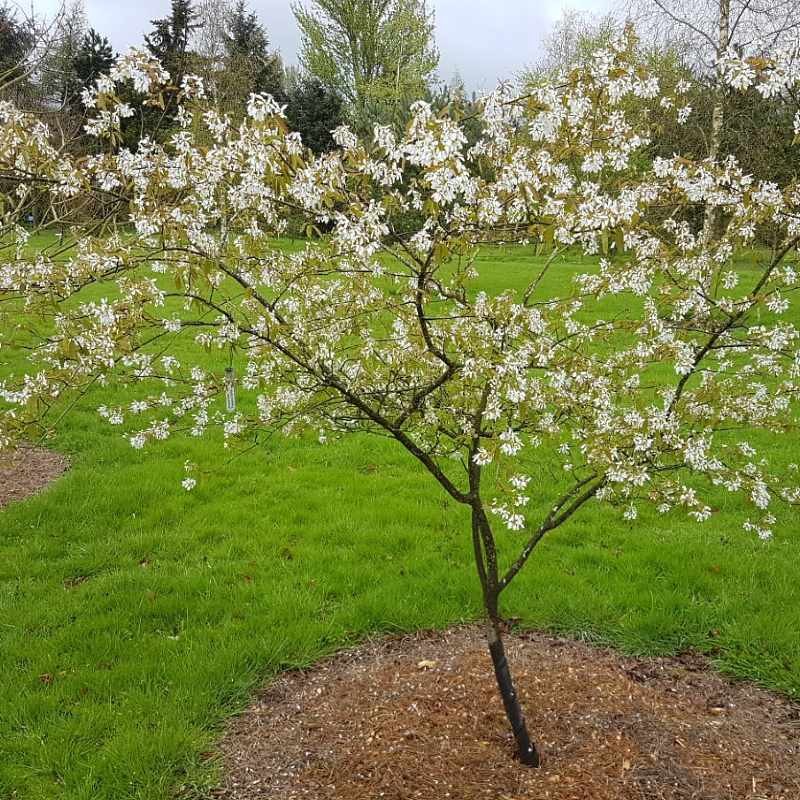
Amelanchier 'Princess Diana'
Description A natural hybrid between A. arborea and A. laevis which includes the listed cultivars above. Learn more about Amelanchier spp . This plant grows as a multi-stemmed tree or shrub. When growing as a tree, the root suckers should be removed to deter a shrubby appearance.

Amelanchier × grandiflora 'Princess Diana' Princess Diana apple
'Princess Diana' is an upright to spreading, deciduous shrub or small tree with oval, mid-green leaves, bronze when young and white flowers in spring followed by dark purple fruit. Season of interest Height and spread Metric | Imperial Where to grow Soil type Loamy Sandy Soil drainage Moist but well-drained Well-drained Soil pH Acid Neutral

Princess Diana Serviceberry J. Frank Schmidt & Son Co.
Amelanchier × grandiflora, the serviceberry, is a small deciduous flowering tree or large shrub, a hybrid of garden origin between A. arborea and A. laevis, in the family Rosaceae. It produces white flowers and small red to purple edible fruits. [1] The Latin specific epithet grandiflora means "large-flowered". [2]

Amelanchier x grandiflora 'Princess Diana'Amélanchier à grandes fleurs
Amelanchier x grandiflora 'Princess Diana' Common Name: Princess Diana Serviceberry 'Princess Diana' differs from the other serviceberry with it's yellow flower buds, heavier flowering with white flowers in spring, dark bluish purple fruit in the summer This cultivar is noted for its long lasting show of fall color-bright red.
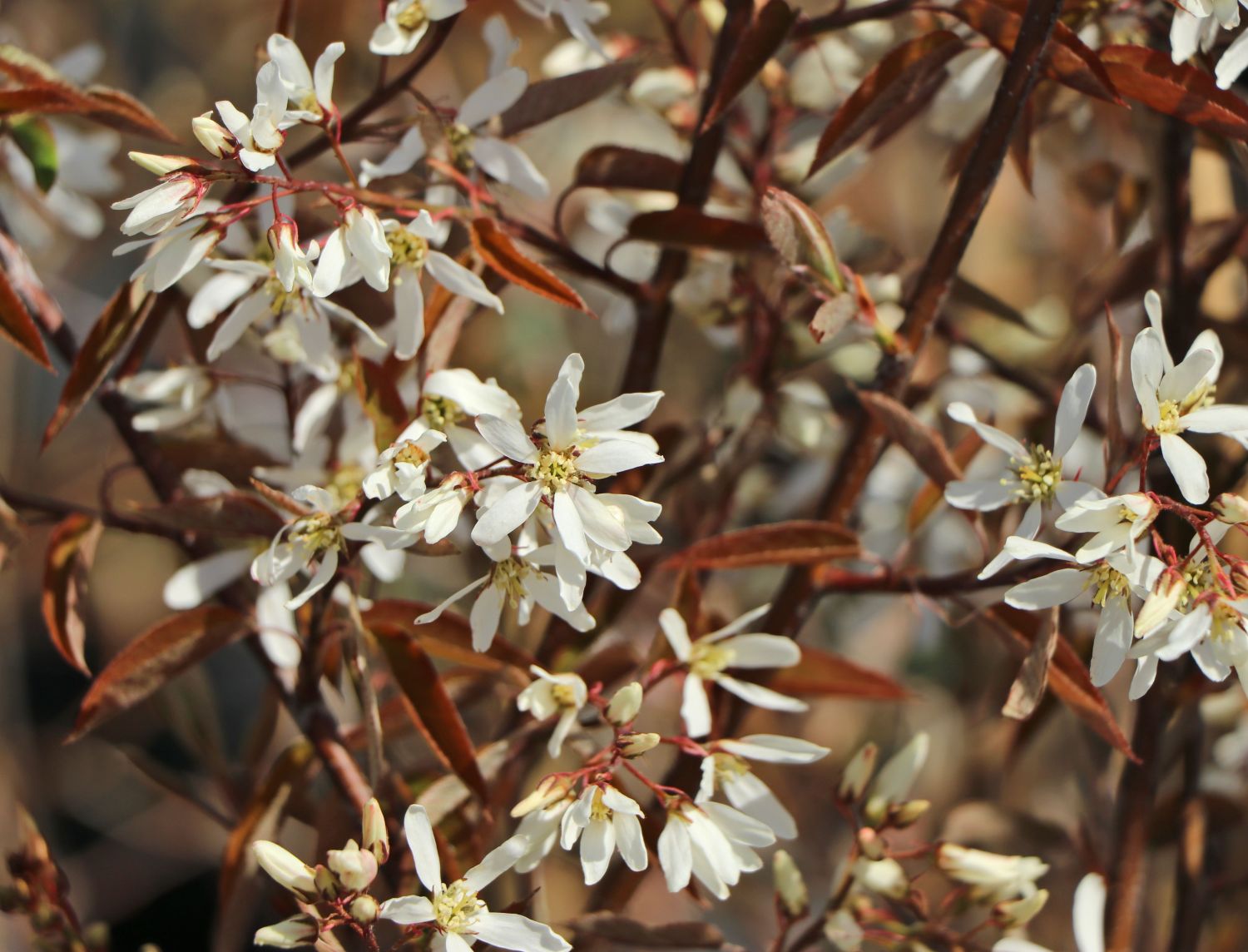
Felsenbirne 'Princess Diana' Amelanchier 'Princess Diana
Height: 20 feet Spread: 15 feet Sunlight: Hardiness Zone: 4a Description: A choice small landscape tree with showy white flowers in early spring and consistent fall colors; a versatile three-season plant for smaller home landscapes Ornamental Features
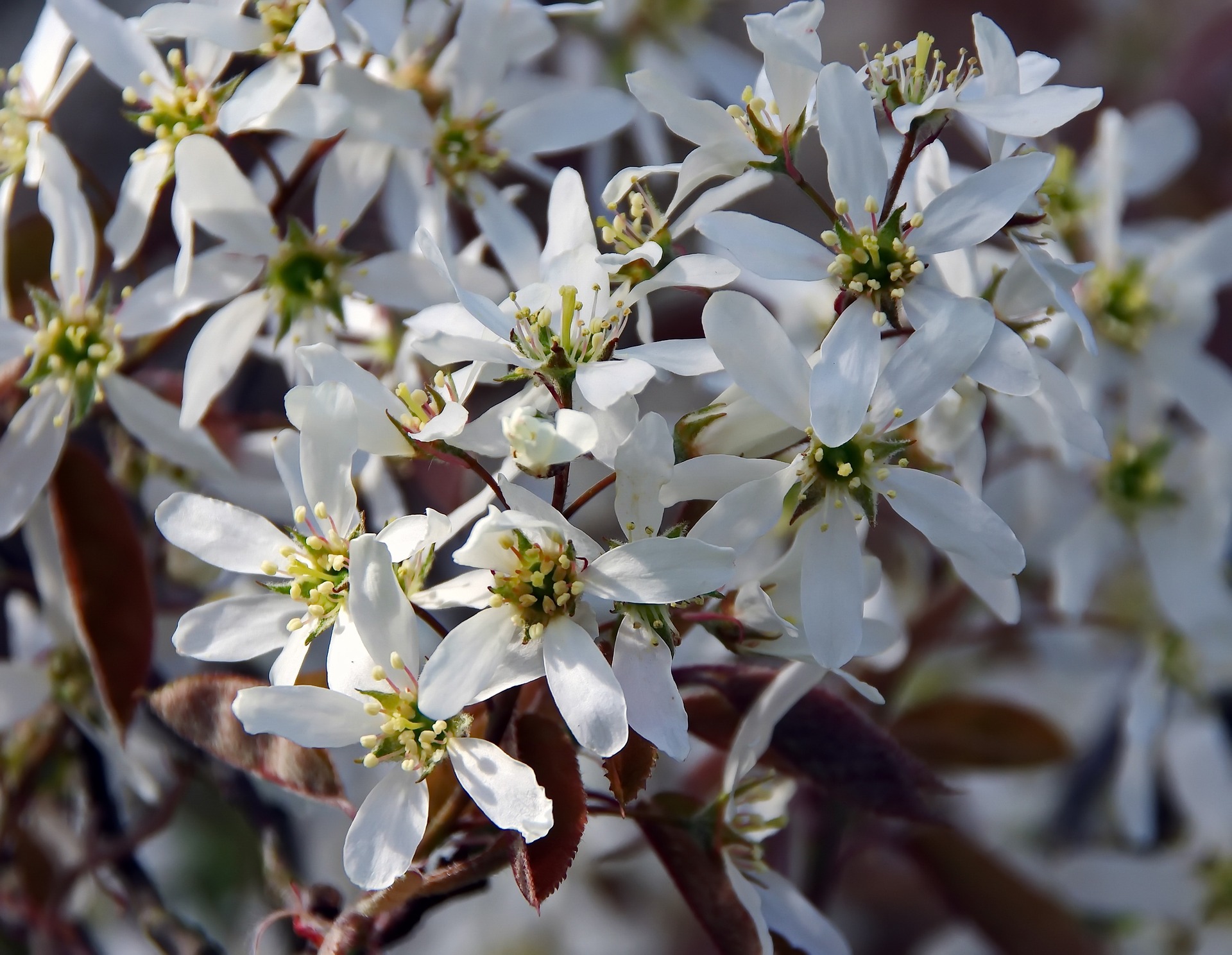
Amelanchier x grandiflora 'Princess Diana'Amélanchier à grandes fleurs
Amelanchier x grandiflora 'Princess Diana' is a broadleaf deciduous tree or shrub with green foliage and white flowers in spring followed by red and purple fruit. It can grow 15 FT - 20 FT - wide, 20 FT - 25 FT - tall. Attractive to birds, bees, butterflies and beneficial insects.
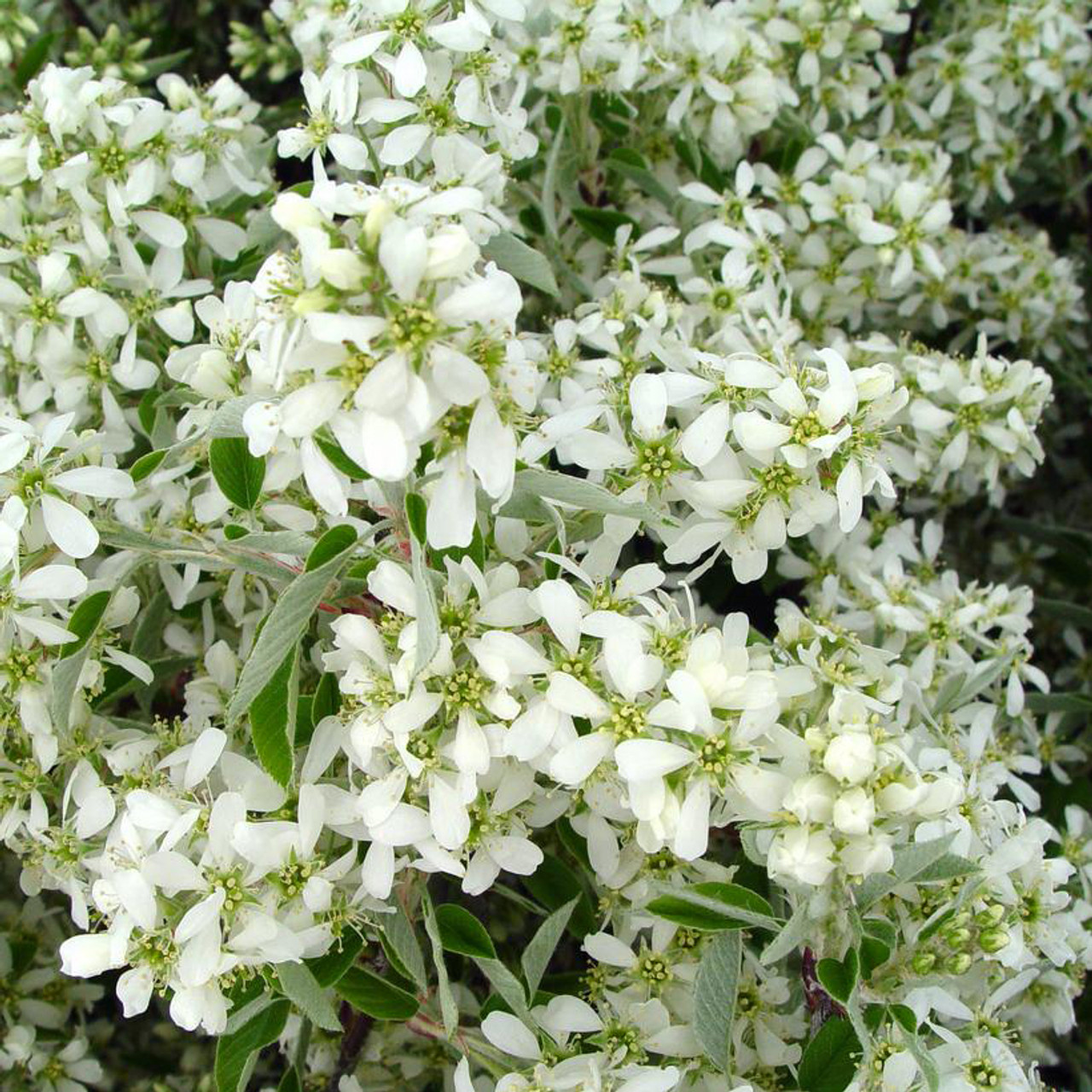
Amelanchier x grandiflora 'Princess Diana' (Treeform) Horsford
01 of 09 Allegheny Serviceberry Dan Mullen / Flickr / CC By 2.0 The Allegheny serviceberry, also known as smooth serviceberry, is native to North America. It is one of the tallest Amelanchier species that may form into multiple trunks. If you prefer a small tree, prune it to create a central leader to serve as the main trunk.

Amelanchier 'Princess Diana', Felsenbirne 'Princess Diana' Baumschule Ley
Princess Diana apple serviceberry (Amelanchier x grandiflora 'Princess Diana'): At 20 to 25 feet high and 15 to 20 feet wide, this cultivar has an upright habit with excellent red fall color. Robin Hill apple serviceberry (Amelanchier x grandiflora 'Robin Hill'): This tree grows to 20 to 25 feet high and 12 to 15 feet wide.
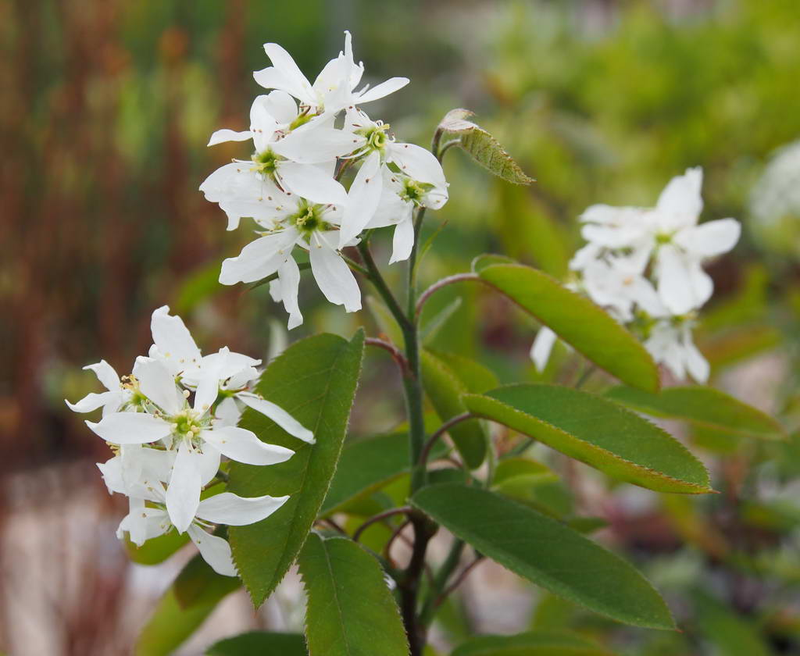
Amelanchier x grandiflora 'Princess Diana' Yougardener
Deciduous shrub. Yellow flower buds, abundant white flowers in spring. Deep bluish-purple fruits are edible. Wide-spreading branches and red fall color. Moderate water needs once established. Botanical Name: Amelanchier grandiflora 'Princess Diana'. Common Name: Serviceberry. Exposure: Full Sun/Part Shade. Dimensions (HxW): 15-20' x 12-15'.
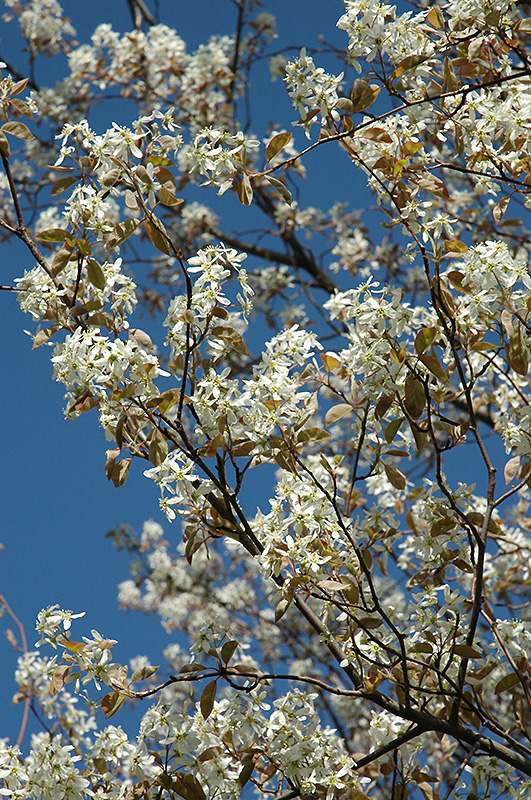
Princess Diana Serviceberry (Amelanchier x grandiflora 'Princess Diana
Amelanchier × grandiflora 'Princess Diana' serviceberry 'Princess Diana' 'Princess Diana' forms a broad, upright shrub or small tree with pale bronze young foliage and white flowers in spring, followed by purplish-blue fruit in summer and red, yellow and orange autumn colour Synonyms Amelanchier laevis 'Princess Diana' Amelanchier 'Princess Diana'
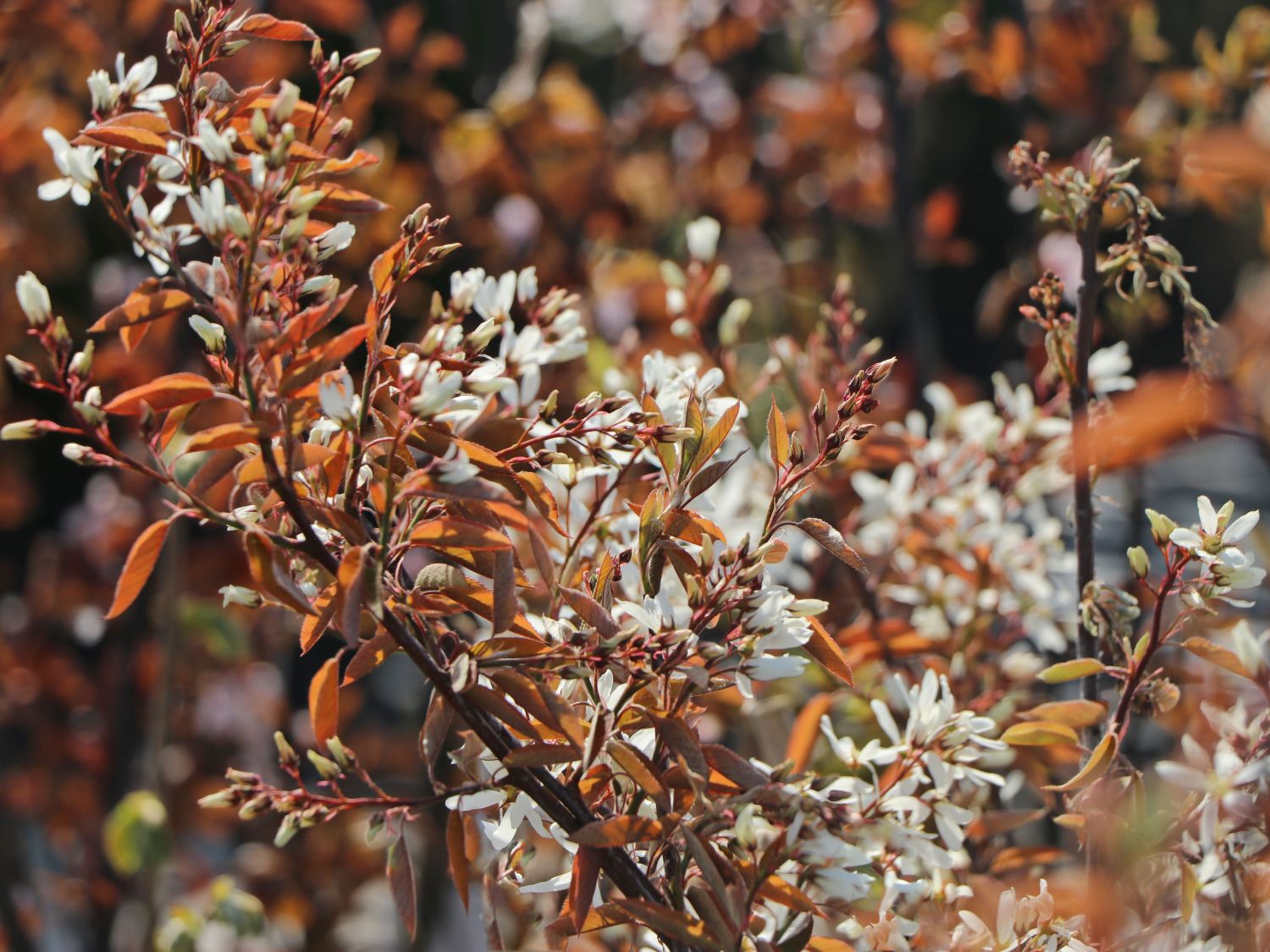
Felsenbirne 'Princess Diana' Amelanchier 'Princess Diana
Characteristics Cultivar: Princess Diana Family: Rosaceae Size: Height: 0 ft. to 30 ft. Width: 0 ft. to 30 ft. Plant Category: shrubs, trees, Plant Characteristics: spreading, Foliage Characteristics: deciduous, Flower Characteristics: long lasting, Flower Color: whites, Tolerances: deer, Requirements Bloomtime Range: Early Spring to Mid Spring

Fall Color photo of Apple Serviceberry (Amelanchier x grandiflora
Amelanchier × grandiflora 'Princess Diana' A small (20') spreading tree with beautiful floral display, good fall color and edible fruits. Habit can be single or multi-stemmed. Princess Diana was the Wisconsin Nursery Association Plant of The Year for 2004. Photo credit Tom Watson.